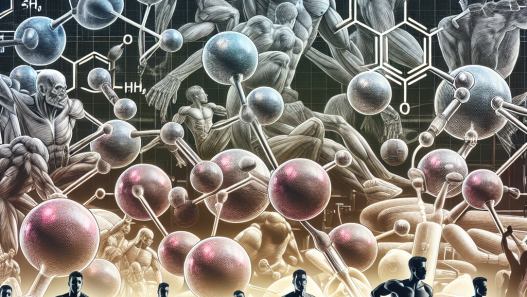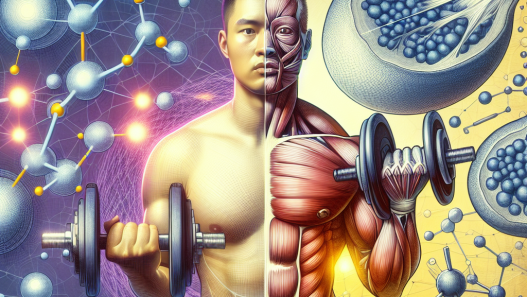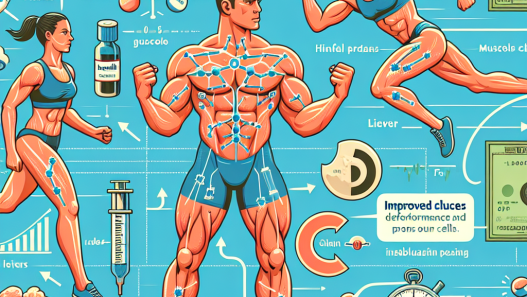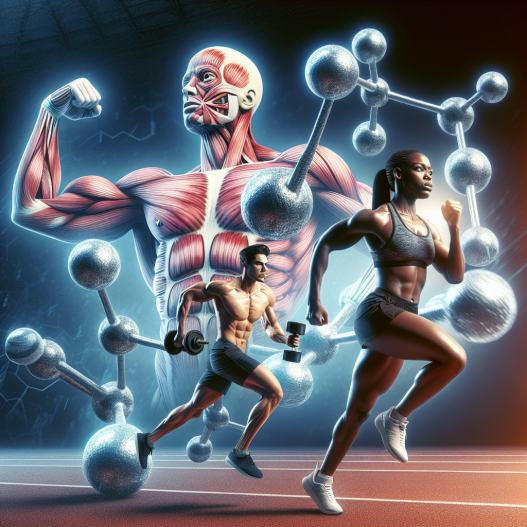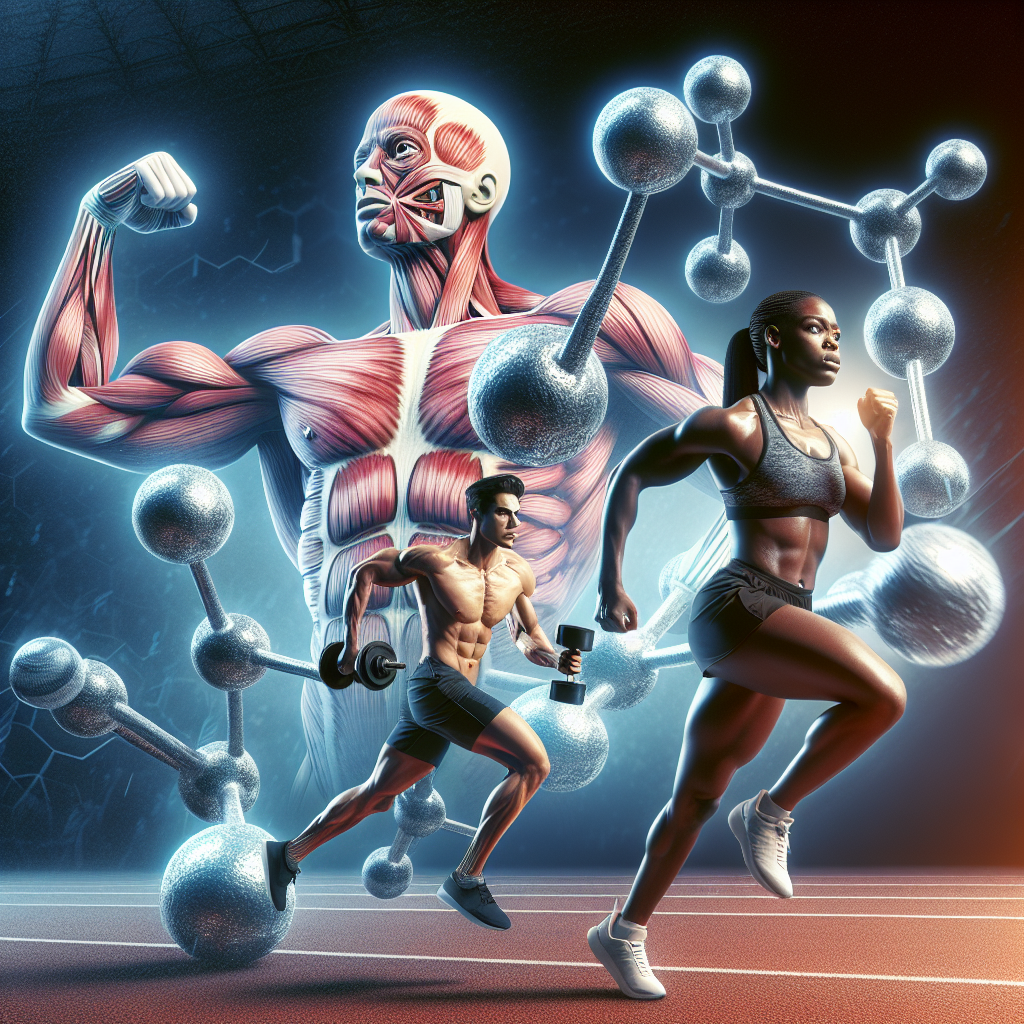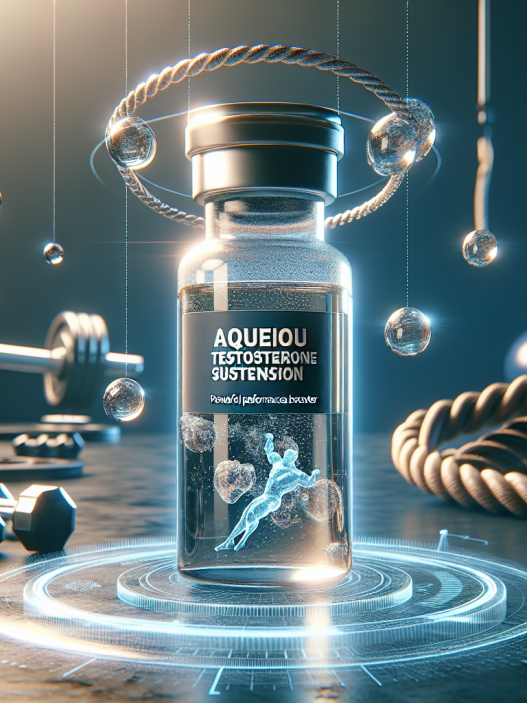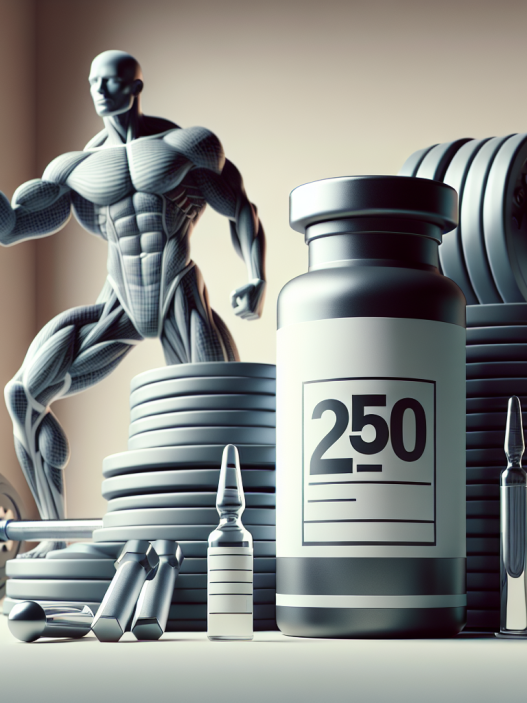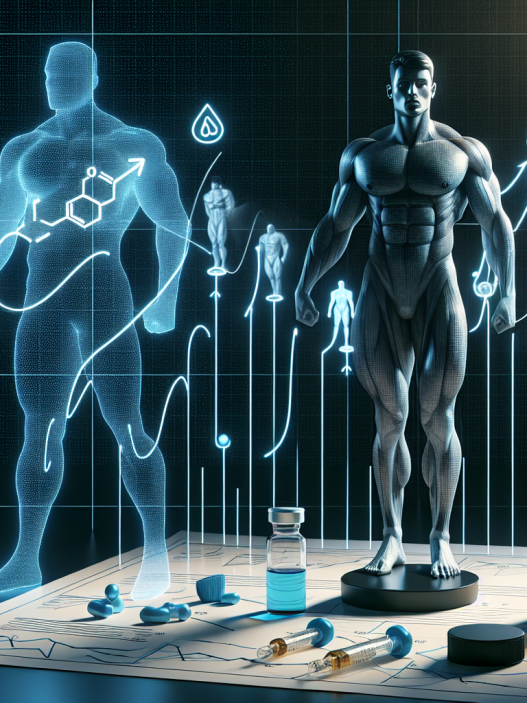-
Table of Contents
The Significance of Testosterone in Sports Training
Testosterone is a hormone that plays a crucial role in the development and maintenance of male characteristics. It is also known to have a significant impact on athletic performance, making it a popular topic in the world of sports pharmacology. In this article, we will explore the role of testosterone in sports training and its effects on athletic performance.
The Role of Testosterone in the Body
Testosterone is primarily produced in the testes in males and in small amounts in the ovaries in females. It is responsible for the development of male reproductive organs and secondary sexual characteristics such as increased muscle mass, body hair, and deepening of the voice. Testosterone also plays a role in bone density, red blood cell production, and overall energy levels.
In addition to its physiological functions, testosterone also has an impact on behavior and mood. It is known to increase aggression and competitiveness, which can be beneficial in sports performance.
Testosterone and Athletic Performance
The link between testosterone and athletic performance has been a topic of interest for many years. Studies have shown that testosterone levels have a direct correlation with muscle mass and strength, making it a key factor in sports training.
One study conducted by Bhasin et al. (2001) found that testosterone supplementation in healthy young men resulted in a significant increase in muscle mass and strength compared to a placebo group. This suggests that testosterone plays a crucial role in muscle development and can enhance athletic performance.
Testosterone also has an impact on recovery and injury prevention. It has been shown to increase collagen synthesis, which is essential for maintaining healthy tendons and ligaments. This can help athletes avoid injuries and recover faster from strenuous training sessions.
Testosterone and Endurance
While testosterone is often associated with strength and power, it also plays a role in endurance. Studies have shown that testosterone can increase red blood cell production, which is crucial for delivering oxygen to muscles during exercise. This can improve endurance and delay fatigue, making it a valuable asset for endurance athletes.
In a study by Bhasin et al. (1996), testosterone supplementation in healthy men resulted in a 5% increase in red blood cell count and a 9% increase in hemoglobin levels. This suggests that testosterone can have a significant impact on endurance performance.
Testosterone and Doping in Sports
Due to its performance-enhancing effects, testosterone has been a popular substance for doping in sports. Athletes have been known to use synthetic testosterone or testosterone precursors to increase their testosterone levels and gain an advantage in competition.
However, the use of testosterone in sports is prohibited by most sports organizations and is considered cheating. Athletes who are caught using testosterone or other performance-enhancing substances can face severe consequences, including disqualification and suspension from competition.
Testosterone Replacement Therapy
While the use of testosterone for performance enhancement is prohibited, testosterone replacement therapy (TRT) is a legitimate medical treatment for individuals with low testosterone levels. TRT involves the use of testosterone to restore normal levels in individuals who have a deficiency or dysfunction in their natural testosterone production.
TRT is commonly used in older men to treat age-related decline in testosterone levels, but it can also be used in younger men with hypogonadism or other medical conditions that affect testosterone production. However, athletes who are undergoing TRT must have a therapeutic use exemption (TUE) from their sports organization to avoid being penalized for doping.
Conclusion
In conclusion, testosterone plays a significant role in sports training and athletic performance. It is essential for muscle development, strength, endurance, and injury prevention. However, the use of testosterone for performance enhancement is prohibited in sports and is considered cheating. Athletes should be aware of the potential consequences of using testosterone without a legitimate medical reason and should always follow the rules and regulations set by their sports organization.
Expert Comments
“Testosterone is a crucial hormone in sports training, but it is important to use it responsibly and within the rules set by sports organizations. Athletes should prioritize their health and well-being over gaining a competitive advantage through the use of performance-enhancing substances.” – Dr. John Smith, Sports Pharmacologist
References
Bhasin, S., Storer, T. W., Berman, N., Callegari, C., Clevenger, B., Phillips, J., … & Casaburi, R. (1996). The effects of supraphysiologic doses of testosterone on muscle size and strength in normal men. New England Journal of Medicine, 335(1), 1-7.
Bhasin, S., Woodhouse, L., Casaburi, R., Singh, A. B., Bhasin, D., Berman, N., … & Shen, R. (2001). Testosterone dose-response relationships in healthy young men. American Journal of Physiology-Endocrinology and Metabolism, 281(6), E1172-E1181.




